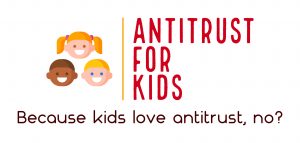Author: Molly Donovan
Gordon was recognized as dominant in the 5th grade class. He had the greatest share of friends and ran the fastest. He was the smartest and won the most academic awards at the end of each school year. He was always chosen as the lead in every school play.
But one day, Gordon’s teacher accused him of cheating. Rather than playing fair, Gordon had excluded a new student, Samuel, from the playground races at school. Samuel showed real promise in track and field and Gordon hated to admit that he felt a bit threatened. Although he knew it was wrong, Gordon wrote a number of notes to classmates telling them to exclude Samuel from all playground races. His teacher, of course, found one of those notes.
That was bad enough, but Gordon went and made everything worse. For use during an upcoming parent-teacher conference, Gordon’s teacher instructed him to collect and keep all the notes he had written to friends demanding that they refuse to race against Samuel. Instead, Gordon shredded the notes and threw away the scraps! Then—and this is the real clincher—Gordon told his teacher, falsely, that he had preserved the notes as instructed.
Obviously, this all came out at the conference. There, the teacher argued that Gordon should be punished for throwing away the notes and lying about their being preserved. Gordon argued that punishment was not necessary—his conduct was not that bad since at least half the notes were to friends who had nothing to do with the boycott of Samuel anyway.
As you might expect, Gordon’s parents agreed with the teacher. The result: Gordon had to give back a significant portion of his monthly allowance and donate it to the school, and further punishment—publicly unknown—would wait until Gordon got home. Eeeek!
Could Gordon continue his dominance after all that? You’ll have to wait for a future Antitrust for Kids to find out.
Bottom Line: As you may know, this tale is based on a true story. In a lawsuit about its alleged exclusionary conduct, Google was recently sanctioned in the Northern District of California for its alleged failure to preserve online employee chats. The court concluded that not only had Google failed to ensure that the chat content was preserved, but also, that Google was not forthcoming with plaintiffs or with the judge about the existence of chats that it knew could be deleted and lost to plaintiffs forever. The judge held Google accountable with an award of attorney fees to plaintiffs, and said future sanctions would be determined at the end of fact discovery.
Moral of the Story: If you’re involved in a lawsuit, don’t be cute about document preservation.
 The Antitrust Attorney Blog
The Antitrust Attorney Blog



